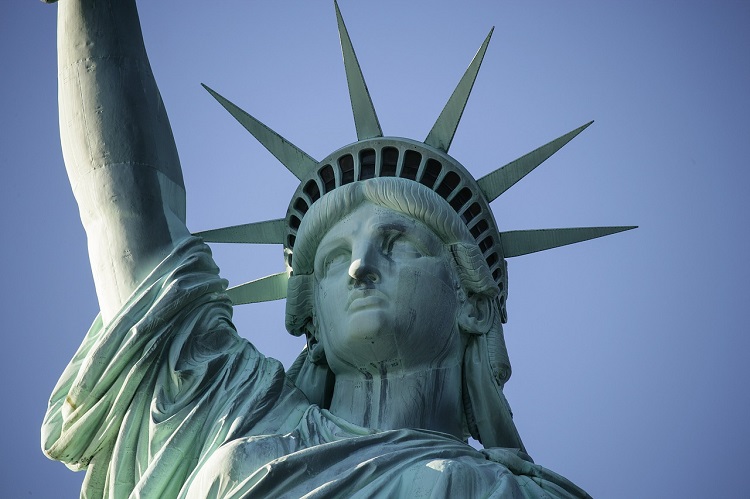4th Amendment Rights of Nonresident Aliens Under United States v. Verdugo-Urquidez

In United States v. Verdugo-Urquidez, 494 U.S. 259 (1990), the U.S. Supreme Court held that the Fourth Amendment does not apply to the search and seizure by United States agents of property that is owned by a nonresident alien and located in a foreign country.
Facts of the Case
After the Government obtained an arrest warrant for Rene Martin Verdugo-Urquidez — a Mexican citizen and resident believed to be a leader of an organization that smuggles narcotics into the United States — he was apprehended by Mexican police and transported here, where he was arrested. Following his arrest, Drug Enforcement Administration (DEA) agents, working with Mexican officials, searched his Mexican residences and seized certain documents.
The United States District Court for the Southern District of California granted Verdugo-Urquidez’s motion to suppress the evidence. It held that the Fourth Amendment — which protects “the people” against unreasonable searches and seizures — applied to the searches, and that the DEA agents had failed to justify searching the premises without a warrant.
The Court of Appeals for the Ninth Circuit affirmed. Citing Reid v. Covert, 354 U.S. 1 (1956), which held that American citizens tried abroad by United States military officials were entitled to Fifth and Sixth Amendment protections, the court concluded that the Constitution imposes substantive constraints on the Federal Government, even when it operates abroad. Relying on INS v. Lopez-Mendoza, 468 U.S. 1032 (1984), where a majority assumed that illegal aliens in the United States have Fourth Amendment rights, the court observed that it would be odd to acknowledge that respondent was entitled to trial-related rights guaranteed by the Fifth and Sixth Amendments, but not to Fourth Amendment protection.
Supreme Court’s Decision
By a vote of 6-3, the Supreme Court reversed. Chief Justice William Rehnquist wrote on behalf of the majority. He was joined by Justices Byron White, Antonin Scalia, Anthony Kennedy and Sandra Day O’Connor. According to the majority, if there was a constitutional violation, it occurred solely in Mexico. Accordingly, it was not a domestic matter.
In reaching its decision, the majority examined the Fourth Amendment phrase “the people.” It concluded that the term referred to “a class of persons who are part of a national community or have otherwise developed sufficient connection with this country to be considered part of that community.” In contrast, those who have not established a sufficient connection to this country are not one of “the people,” and, therefore, not protected under the Fourth Amendment.
In support of its interpretation, the majority cited the legislative history of the Fourth Amendment. The Chief Justice explained:
It was never suggested that the provision was intended to restrain the actions of the Federal Government against aliens outside of the United States territory. There is likewise no indication that the fourth amendment was understood by contemporaries of the Framers to apply to activities of the United States directed against aliens in foreign territory.
The majority further noted that extraterritorial aliens are also not entitled to protections under the Fifth Amendment, which uses the relatively more universal term of “person.” It also raised concerns that adopting Verdugo-Urquidez’s position would have “significant and deleterious consequences” for the United States in conducting activities beyond its boundaries.
“The rule adopted by the Court of Appeals would apply not only to law enforcement operations abroad, but also to other foreign policy operations which might result in ‘searches or seizures,’” the Chief Justice wrote. “The United States frequently employs Armed Forces outside this country – over 200 times in our history – for the protection of American citizens or national security…Application of the Fourth Amendment to those circumstances could significantly disrupt the ability of the political branches to respond to foreign situations involving our national interest.”
Previous Articles
SCOTUS Decision in Bowe v. United States Is First of the 2026 Term
by DONALD SCARINCI on February 5, 2026
In Bowe v. United States, 607 U.S. ___ (2026), the U.S. Supreme Court held that Title 28 U.S.C. § ...
SCOTUS Rules State Can’t Immunize Parties from Federal Civil Liability
by DONALD SCARINCI on January 29, 2026
In John Doe v. Dynamic Physical Therapy, LLC, 607 U.S. ____ (2025) the U.S. Supreme Court held that...
Supreme Court to Address Racial Discrimination in Jury Selection
by DONALD SCARINCI onWhile the U.S. Supreme Court has concluded oral arguments for the year, it continues to add cases t...
The Amendments
-
Amendment1
- Establishment ClauseFree Exercise Clause
- Freedom of Speech
- Freedoms of Press
- Freedom of Assembly, and Petitition
-
Amendment2
- The Right to Bear Arms
-
Amendment4
- Unreasonable Searches and Seizures
-
Amendment5
- Due Process
- Eminent Domain
- Rights of Criminal Defendants
Preamble to the Bill of Rights
Congress of the United States begun and held at the City of New-York, on Wednesday the fourth of March, one thousand seven hundred and eighty nine.
THE Conventions of a number of the States, having at the time of their adopting the Constitution, expressed a desire, in order to prevent misconstruction or abuse of its powers, that further declaratory and restrictive clauses should be added: And as extending the ground of public confidence in the Government, will best ensure the beneficent ends of its institution.





